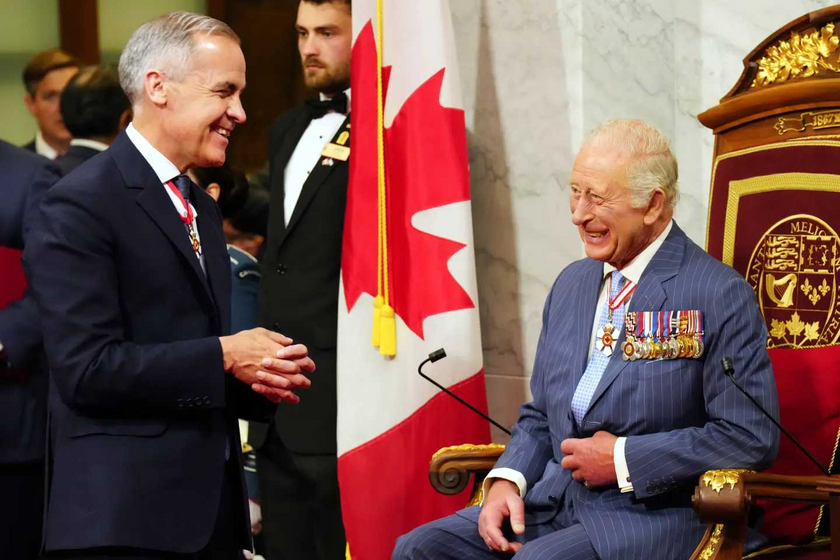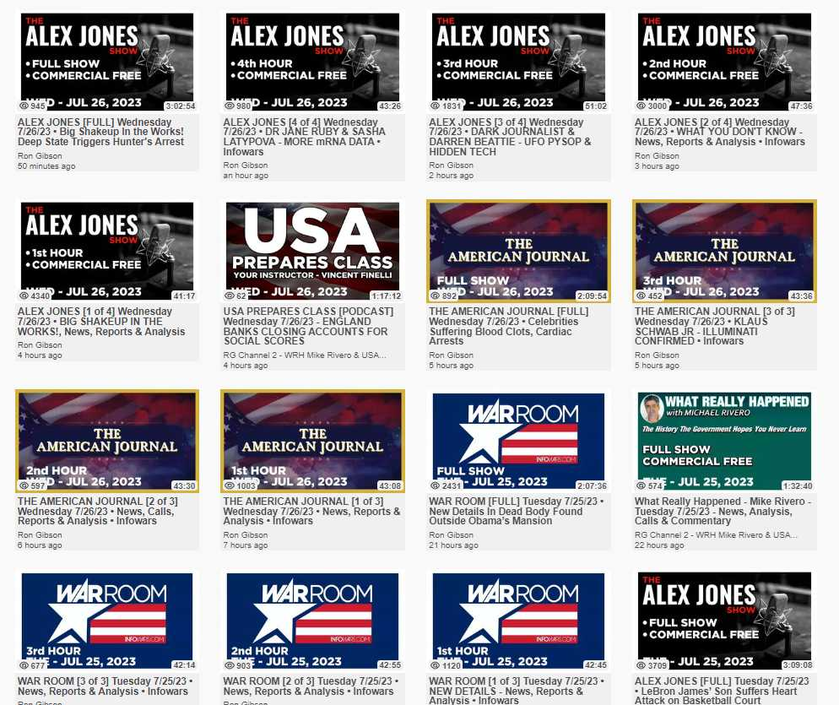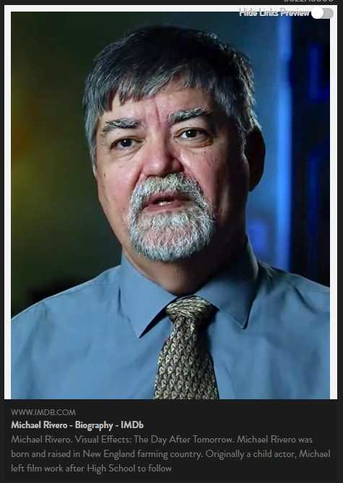Since the 2006 Legal Timelines of the DC Madam and Jeffrey Epstein parallel each other and both the DC Madam Deborah Jeane Palfrey and Ghislaine Maxwell were engaged in high-end prostitution enterprises, both enterprises likely competed for the same "upscale" clientele.
- "D.C. Madam": Palfrey ran Pamela Martin and Associates, an escort service in Washington D.C., that was believed to cater to high-profile clients in the political and military elite.
- Conviction: In 2008, she was convicted of racketeering, using the mail for illegal purposes, and money laundering related to her business.
- Death: Palfrey was found dead by hanging shortly after her conviction, which was ruled as a suicide by the medical examiner, according to Wikipedia. Her death fueled conspiracy theories that she was silenced to prevent the exposure of her clients.
- Epstein Associate: Maxwell is primarily known for her close association with Jeffrey Epstein, a convicted sex offender.
- Conviction: She was convicted in 2021 of sex trafficking and conspiring to entice minors to engage in illegal sex acts related to her role in Epstein's network of abuse.
- Sentencing: Maxwell was sentenced to 20 years in prison for her crimes.
- Victims: Maxwell played a role in recruiting and grooming underage girls for Epstein, sometimes participating in the abuse herself.
- Focus of the Crimes: While both women were involved in illegal sexual activities, Palfrey's operation focused on adult prostitution, while Maxwell was deeply implicated in the sex trafficking and abuse of minors.
- Scale and Scope: Maxwell and Epstein's operation appeared to be more geographically widespread and focused on the trafficking and abuse of minors, whereas Palfrey's business targeted high-profile clientele within the D.C. area for adult escort services.
- Association with Others: Maxwell was a key associate of Jeffrey Epstein, acting as a facilitator and participant in his crimes. Palfrey operated her own escort service independently.
- Jeffrey Epstein: An American financier with a vast network of wealthy and influential acquaintances, Epstein was accused of sexually abusing and exploiting numerous underage girls across various locations, including New York, Florida, and the US Virgin Islands. He cultivated a lavish lifestyle and connections to powerful individuals, allegedly using these connections to facilitate and conceal his crimes. After a prior conviction in Florida in 2008 for state prostitution charges, Epstein was arrested in 2019 by federal prosecutors on sex trafficking charges. However, he died by suicide in a Manhattan jail cell a month later, preventing a federal trial.
- Ghislaine Maxwell: A British socialite and Epstein's former girlfriend and close associate, Maxwell played a crucial role in his sex trafficking operation. She was found guilty by a jury in December 2021 on five federal charges, including sex trafficking of a minor and conspiracy charges related to enticing and transporting underage girls for illegal sexual activity. Maxwell was sentenced to 20 years in prison in June 2022 for facilitating years of sexual abuse. She has appealed her conviction and sentence, but the convictions were upheld by a federal appeals court in September 2024. Maxwell is currently serving her sentence at a low-security prison in Florida and is eligible for release in July 2037.
- Victim Recruitment and Abuse: Maxwell was instrumental in recruiting and grooming vulnerable underage girls for Epstein's abuse. Victims testified about being lured with promises of opportunity and gifts and subjected to sexual abuse at various locations associated with Epstein.
- Non-Prosecution Agreement (NPA): A controversial non-prosecution agreement between Epstein and federal prosecutors in Florida in 2007 allowed him to plead guilty to state charges and avoid federal prosecution and a potentially much longer prison sentence. This agreement also included immunity from prosecution for potential co-conspirators. Maxwell's legal defense attempted to argue that this NPA shielded her from prosecution in New York, but the appeals court rejected this argument, stating that the agreement only applied to the Southern District of Florida.
- Conspiracy Theories and the "Client List": Epstein's death in prison, ruled a suicide, fueled numerous conspiracy theories, including claims that he was murdered to prevent the disclosure of a "client list" implicating powerful individuals in his crimes. However, a joint review by the US Department of Justice (DOJ) and the FBI concluded that Epstein died by suicide and did not possess such a list, according to Al Jazeera.
SWEETHEART DEAL FOR A SNITCH
WHO GOT BURNED?
KEY EPSTEIN DATES
- 2002:
- Annie and Maria Farmer spoke to [ reporter Vicky Ward of Vanity Fair ] on the record, as did their mother, who said that her daughters had told her about distressing encounters with Maxwell and Epstein. According to Ward, she also spoke to two other sources, David Schafer and Eric Fischl, who knew Maria through the New York Academy of Art and had some knowledge of what had happened in Ohio.
- 2003:
- March: The Vicky Ward Vanity Fair article on Epstein, "did not include the Farmers’ allegations, noting only that Epstein tended to surround himself with young women. Ward claims that this was a result of Epstein’s influence on Carter. After Epstein visited Vanity Fair’s office, she claims, Carter told her that Epstein was “sensitive about the young women.” Epstein denied the Farmers’ allegations, and, according to Ward, Carter said, 'I believe him.'"
- 2005:
- March: A woman reports Epstein to Florida police for allegedly molesting her 14-year-old stepdaughter, initiating a police investigation.
- October: Police search Epstein's Palm Beach home.
- 2006:
- July 27: Epstein is arrested in Palm Beach on state felony charges of procuring a minor for prostitution and solicitation of a prostitute. He is released on $3,000 bond.
- July: The FBI opens a federal investigation into Epstein, dubbed "Operation Leap Year".
- 2007:
- June: A federal grand jury returns a 53-page indictment against Epstein.
- September 24: Epstein signs a non-prosecution agreement with federal and state authorities, known as the "deal of the century", agreeing to plead guilty to two felony prostitution charges in state court to avoid federal prosecution.
- 2008:
- January: The FBI sends letters to victims, urging patience, but without disclosing the non-prosecution agreement that effectively ended the federal investigation.
- June 30: Epstein pleads guilty to two felony prostitution charges in state court and is sentenced to 18 months in jail. He serves 13 months with significant work-release privileges.
- 2009:
- July: Epstein is released from jail and spends a year on house arrest with travel privileges.
- 2019:
- July 6: Epstein is arrested in New Jersey on federal sex trafficking charges related to incidents in Palm Beach and New York.
- August 10: Epstein is found dead in his jail cell at the Metropolitan Correctional Center in New York City. His death is ruled a suicide by hanging.
- August 29: All charges against Epstein are dismissed due to his death.
- 2020:
- July 2: Ghislaine Maxwell, Epstein's associate, is arrested and charged with conspiracy to commit sex trafficking of minors.
- November: A Department of Justice review finds that then-U.S. Attorney Alex Acosta exercised "poor judgment" in granting Epstein the non-prosecution agreement.
- 2021:
- December 29: Maxwell is found guilty of several charges, including sex trafficking and conspiracy.
- 2022:
- June 28: Maxwell is sentenced to 20 years in federal prison.
KEY DC MADAM DATES
- 1990: Palfrey is arrested in San Diego on charges related to pimping, pandering, and extortion.
- 1992: She is convicted and serves 18 months in prison for those charges.
- 2004: Law enforcement officials begin investigating Palfrey's new business, Pamela Martin and Associates. [The IRS and U.S. Postal Inspection Service?]
- Following Deborah Jeane Palfrey's previous arrest and conviction in 1992, a two-year probe by the Internal Revenue Service (IRS) and the IRS and United States Postal Inspection Service began investigating Pamela Martin and Associates, her new business, starting in 2004 [ 10 years after she is released from prison, IRS and USPS Inspectors begin a 2-year probe?] This investigation culminated in the raid of Palfrey's home in October 2006 and her subsequent indictment in 2007.
- October 9, 2006: Federal agents raid Palfrey's home in northern California, seizing documents and freezing her bank accounts as part of a two-year investigation by the IRS and U.S. Postal Inspection Service.
- October 2006: Palfrey is arrested on charges related to her D.C. escort service.
- January 30, 2007: Former Palfrey business associate, University of Maryland Professor Brandi Britton hangs herself. Britton was headed to trial on four counts of prostitution. She declined a plea.
- March 1, 2007: She is indicted in federal court in Washington D.C., on charges of racketeering and money laundering.
- July 6, 2007: A federal judge lifts a restraining order on Palfrey, allowing her to release thousands of pages of phone records.
- April 15, 2008: Palfrey is convicted of racketeering, money laundering, and using the mail for illegal purposes.
- May 1, 2008: Facing a potential prison sentence of several years, Palfrey is found dead in an apparent suicide by hanging at her mother's home in Florida.
- July 24, 2008: Palfrey was scheduled to be sentenced, but her death vacated the conviction.
The Talented Mr. Epstein
| By Vicky Ward | March 2003 | Vanity Fair | Lately, Jeffrey Epstein's high-flying style has been drawing oohs and aahs: the bachelor financier lives in New York's largest private residence, claims to take only billionaires as clients, and flies celebrities including Bill Clinton and Kevin Spacey on his Boeing 727. But pierce his air of mystery and the picture changes. VICKY WARD explores Epstein's investment career, his ties to retail magnate Leslie Wexner, and his complicated past https://archive.vanityfair.com/article/2003/3/the-talented-mr-epstein
"D.C. Madam” Deborah Jeane Palfrey - No Way to Treat a Lady
Why Didn’t Vanity Fair Break the Jeffrey Epstein Story?
Trial Nearing, Alleged Call Girl Found Dead
| By Darragh Johnson | January 30, 2007 | Washington Post | Brandi Britton, 43, was the first in her family to go to college, double-majoring in biology and sociology. Her first sociology professor, Sheila Cordray, told The Washington Post last year that Britton was "one of the brightest students I've ever had." https://www.washingtonpost.com/wp-dyn/content/article/2007/01/29/AR2007012900654.html
Twisting Trail Of The D.C. Madam
| By Will Short Gorham & Curtis Krueger | May 2, 2008 | Tampa Bay Times
https://www.tampabay.com/archive/2008/05/02/twisting-trail-of-the-d-c-madam/
DC Madam Attorney: Client Revelations; Cruz News?
| By Andrew Kreig | April 8, 2016 | Justice-Integrity Project | “I’m going to release a list of the agencies,” Sibley told Alex Jones Infowars broadcast host David Knight. Sibley said he would disclose workplaces and “not specific names” of customers, whose identities remain suppressed under the still-pending order in May 2007 by Palfrey’s federal trial judge in Washington, DC. https://www.justice-integrity.org/faq/1022-dc-madam-attorney-public-could-learn-vip-client-jobsites-next-week
Update: On Monday April 11, Sibley has started to identify those who called the escort service of his former client. In a court filing in U.S. District Court for the District of Columbia obtained by WTOP, Montgomery Blair Sibley included the names of 174 of the entities that had dialed Palfrey’s business, as station WTOP reported in Ex-lawyer starts disclosing who called ‘D.C. Madam.’
"Immunity Incorporated: All the Injustice that Jeffrey Epstein Can Buy,"
SINGLING OUT [THE BIG] APPLE’S TOP STUDS
Jeffrey Epstein's Elite Concierge Service
| By Vicky Ward | Apr 24, 2023 | Vicky Ward Investigates | It’s this elite concierge aspect of Epstein that is just so intriguing. How the heck could Epstein, a college dropout, with no broker’s license, embed himself so completely in the lives of the uber-rich that they trusted him and not America’s biggest bank? https://www.vickywardinvestigates.com/p/jeffrey-epsteins-elite-concierge
Possible Palfry - Ghislaine Maxwell - Brandi Britton - Jeffrey Epstein Connections
- Received a pledge and partial donation from Epstein to establish the Program for Evolutionary Dynamics. According to The Washington Post, Epstein also sat on the Mind, Brain and Behavior Advisory Committee at the university.
- Institute for Advanced Study at Princeton: Involved with the Theoretical Biology Initiative at the Institute.
The battered women's movement in the United States c.1973-1993: A micro-macro analysis
Britton, Brandy Mar-Lane. Britton, Brandy Mar-Lane University of California, San Francisco ProQuest Dissertations & Theses, 1993. 9406606. https://www.proquest.com/openview/dd73bf5a3f77a201133e5181bc6c0e81/1?pq-origsite=gscholar&cbl=18750&diss=y
- Jessica Leigh Collins v United States of America, Civil Action No. 25-cv-228 (RDM)
- https://cdnc.heyzine.com/files/uploaded/1b620b9bf9f12530c6d74897dc618c3081cb3915.pdf
- REDRESS FOR SEX TRAFFICKING AND RACKETEERING
- "Overwhelming proof establishes that my daughter and I are the specific victims
who are being covered up by the Jeffrey Epstein and DC Madam news, as I was trafficked to
Jeffrey Epstein by the DC Madam."
- https://www.govinfo.gov/content/pkg/USCOURTS-dcd-1_25-cv-00228/pdf/USCOURTS-dcd-1_25-cv-00228-0.pdf
- MEMORANDUM OPINION
- "Where, as here, the plaintiff is proceeding pro se, the Court will hold her pleadings “to
less stringent standards than formal pleadings drafted by lawyers.” Erickson v. Pardus, 551 U.S. 89, 94 (2007) (internal quotation marks and citation omitted). Even pro se litigants, however, must comply with the Federal Rules of Civil Procedure. Jarrell v. Tisch, 656 F. Supp. 237, 239 (D.D.C. 1987) [ . . . ] Plaintiff’s complaint fails to comply with the minimal pleading standard set forth in Rule 8(a)."
- True Story of Jeffrey Epstein Victims
by Jessica Leigh-Collins, also known as Brooklyn Chase, https://books.apple.com/no/book/true-story-of-jeffrey-epstein-victims/id6449612667
- https://cdnc.heyzine.com/files/uploaded/1b620b9bf9f12530c6d74897dc618c3081cb3915.pdf
- Companies and Institutions on the MONTGOMERY BLAIR SIBLEY list:
- The Roger Richman Agency Inc - a company specializing in representing celebrity estates and licensing their images for various uses
- The Roger Richman Agency Inc., a preeminent celebrity licensing and marketing agency, was based out of Beverly Hills, California. The company, founded in 1978, represented the estates of deceased celebrities and historical figures for 27 years, playing a significant role in establishing celebrity rights legislation. It was acquired by Corbis in 2005.
- Corbis was founded by Bill Gates in 1989 and was later acquired by Visual China Group in 2016. However, the search results do not suggest any financial dealings, shared associates, or other links between Jeffrey Epstein and Corbis or Bill Gates beyond Gates's acknowledgment of having met with Epstein. It's important to note that Epstein attempted to blackmail Bill Gates over an extramarital affair, but Gates never had any financial dealings with Epstein.
- The Roger Richman Agency Inc - a company specializing in representing celebrity estates and licensing their images for various uses
SISSY CHRISTINE MAXWELL BEHIND THE SCENES!
**[EPSTEIN] INTEL TAPES HELD BY...** | Jul 13, 2025 | Riss Flex
Maxwell's Silver Hammer: The Irresistable, Irrepressible Christine Maxwell
https://web.archive.org/web/20041021043006/http://www.isoc.org/oti/articles/0998/stokes.html
Christine Maxwell | DBpedia
Christine Yvonne Malina-Maxwell (born 16 August 1950) is a British Internet content pioneer and educator. She is the creator and co-founder of Magellan, co-founder of the software company Chiliad, the author of several books, and sister of Ghislaine Maxwell. She is the Program Manager of Learning Technologies at the University of Texas at Dallas https://dbpedia.org/page/Christine_Maxwell
Christine Maxwell | LittleSis Public Accountability Initiative
Co founder of Magellan, owner of Chiliad Software.; daughter of Robert Maxwell
Christine Maxwell, Ghislaine Maxwell’s sister, was born in France in 1950 and co-founded Magellan, one of the internet’s early search engines. According to The Daily Beast, Maxwell was a doctoral candidate at the The University of Texas at Dallas in 2019 https://littlesis.org/person/355395-Christine_Maxwell
Jeffrey Epstein Conspiracy Theories and Ghislaine Maxwell’s Dallas Family Tree
| By Kathy Wise | August 20, 2019 | D Magazine https://www.dmagazine.com/frontburner/2019/08/jeffrey-epstein-conspiracy-theories-and-ghislaine-maxwells-dallas-family-tree/
Firstly, if you’re already caught up in Jeffery Epstein murder conspiracies, as several of my coworkers are (Tim), please read this. Christine Tartaro, author of Suicide and Self-Harm in Prisons and Jails and a professor of criminal justice at Stockton University, makes a good point in an interview published today with Mother Jones. Part of the reason people find Epstein’s suicide hard to believe is because so many Americans don’t understand the current state of correctional facilities across the country. They suck. New York’s Metropolitan Correctional Center, where Epstein died, has been the subject of prisoner complaints for its torturous conditions for years.
Secondly, if you thought the whole Epstein thing had nothing to do with Dallas, read this. Over the weekend, The Daily Beast traced the twisted family tree of Epstein’s longtime companion, Ghislaine Maxwell. One of Ghislaine’s older sisters, Christine Maxwell, spearheads Special Projects for Information Resources at the University of Texas at Dallas. The board director of Chiliad Inc. made her fortune as one of the founders (along with her twin, Isabel) of Magellan, one of the first internet search engines. She’s also the author of the international bestseller The Pergamon Dictionary of Perfect Spelling. Apparently it is very helpful for people with dyslexia.
Thirdly, as to why Christine may be relevant to the whole affair, the New York Post reported yesterday that she was spotted picking up bags near the Massachusetts home of Scott Borgerson, a tech CEO who had been romantically linked to Ghislaine, leading to speculation that she might be aiding her sister.
Ghislaine Maxwell's Family Moved to SF Bay Area for Ai & Gene Studies
| By | Adina Flores | Jun 09, 2025 | Maxwell was found guilty of luring teenage girls to be sexually abused by American financier Jeffrey Epstein, but her family claimed she was innocent https://adinaflores.substack.com/p/ghislaine-maxwells-family-moved-to
The eldest son of Ms. Christine Maxwell is Mr. Xavier Molina. He worked on the Barack Obama-Joe Biden 2008 presidential campaign while studying in Massachusetts for a degree in international relations. He was an assistant in the Office of White House Personnel at the Executive Office of the President, and the Carnegie Endowment for International Peace. He eventually became a lecturer at UC Berkeley and Product Analyst for Google in the SF Bay Area.
Ghislaine Maxwell, NSA, the FBI & the WEF
| By Grazing the Surface | January 25, 2024 |
Ghislaine Maxwell’s sister Christine Maxwell created Chiliad, a database tracking software that runs All of the FBI intelligence databases, connected and accessing databases through the CIA, NSA, DOJ, and many other National Intelligence Databases. The software has also been installed in many other companies and government agencies.
The software was coupled with HP servers and used in FBI & CIA database technology.
Isabel Maxwell’s second husband who was co-founder of Magellan was David Hayden. I’m sure it’s just a coincidence and maybe they’re not related, but Michael Hayden is former director of the NSA.
One week after 9/11 NSA Director Michael Hayden arranged for those Chiliad HP servers to be delivered to Washington DC under President George HW. Bush https://www.grazingthesurface.com/2024/01/25/ghislaine-maxwell-the-fbi-the-wef/
FBI Shows Off Counterterrorism Database
Christine Maxwell Backmatter
https://www.sbir.gov/portfolio/125293#
https://www.highergov.com/awardee/chiliad-publishing-incorporated-13261233/
https://firstmonday.org/ojs/index.php/fm/article/view/525/446
- Christine Maxwell, sister of Ghislaine Maxwell, co-founder of CHILIAD, software and publishing (awarded US Govt. contracts in surveillance data collection and collation, 2002 through 2014), Oxford and Claremont Graduate University (CGU California, founded 1926). Christine Maxwell is currently a Research Fellow at ISGAP - Institute for the Study of Global Antisemitism and Policy The University of Texas at Dallas and Program Manager of Learning Technologies at the University of Texas at Dallas, not to mentioned, co-founder and CEO of Techtonic Insight, Inc. (TECHtonic INsight Inc "Mission: to leverage our existing intellectual property (IP) to deliver sophisticated iterative discovery and analysis technology", meaning Chiliad Publishing).
- Jessica Leigh Collins, Epstein and Ghislaine Maxwell victim, author of True Story of Jeffrey Epstein Victims
- Deborah Jeane Palfrey, the DC Madam and millionaire, paralegal and proprietor Pamela Martin and Associates (opened 1993) and Rollins College graduated (founded 1885, Florida's fourth oldest post-secondary institution).
- Brandy Mar-Lane Britton, former assistant professor of sociology and anthropology at the University of Maryland, dissertation, *The battered women's movement in the United States c.1973-1993: A micro-macro analysis*, UC San Francisco. 1993. Later the Founder of Institute for Women and Girls Health Research Inc.
- Roger Richman, The Roger Richman Agency Inc., a preeminent celebrity licensing and marketing agency, was based out of Beverly Hills, California. The company, founded in 1978, represented the estates of deceased celebrities and historical figures for 27 years, playing a significant role in establishing celebrity rights legislation. It was acquired by Corbis in 2005. Corbis was founded by Bill Gates in 1989.
When you begin intersecting Timelines interesting patterns emerge.
Here's another twist --- trying to verify it...
One name I didn't Bullet Point was Vicky Ward and that's because she's the Vanity Fair investigative reporter that essentially uncovered Epstein crimes in 2002 through her interview of the ***Farmer Girls***. These young ladies had worked for Epstein and they're the basis of the Bill Clinton being named...
Well JUST YESTERDAY according to John Kiriakou and Danny Jones the ladies also named DJT.
DJT is in any files dealing with Epstein and GMax...
**CIA Spy Breaks Silence on Epstein Cover-Up, Mossad & Trump's #1 Problem | John Kiriakou** | Jul 14, 2025 | *Danny Jones Podcast*
John Kiriakou exposed the CIA for it's illegal torture program. To date, he's the only CIA officer ever imprisoned by the US Government.
OUTLINE
00:00 - The Epstein cover-up
11:35 - John Pollard & Israeli espionage
18:21 - why the CIA and Mossad don't get along
22:35 - The Mossad pager operation
30:55 - What Israeli spies are looking for in the U.S.
35:05 - Trump looks guilty for Epstein cover-up
45:27 - Netanyahu pulling America into war on Iran
49:43 - Iranian sleeper cells
52:23 - How the war on Iran will end
01:04:06 - Trump's new threats on Russia
01:13:29 - Alarming new banking rules
01:21:32 - Thomas Massie & politician funding
01:32:25 - The problem with "standing with Israel"
01:43:04 - Trump's Christianity advisor
01:52:38 - AI is the second coming of Christ
02:02:42 - Elon vs. Trump
02:08:04 - Why the Big Beautiful Bill had so much junk in it
02:16:01 - $150B in ICE & CBP funding
02:21:57 - The Bush immigration law that never happened
02:24:59 - John's new podcast
MORE ON SISSY MAXWELL
Sissy Christine Maxwell's software companies have landed US Defense and Justice Dept. contracts as far back as 2002, not to mention connections to BAE Systems (UK). These companies (Magellan, Chiliad Publishing, and TECHtonic INsight Inc.) compete with the likes of Palantir. This Epstein/Maxwell matter is about failed government that have led to the murder of children.Stepping up on Cyber Defence client conversation
| by Mivy James | 13 February 2025 | BAE Systems | Christine Maxwell is a woman on a mission – a cyber mission. She tells Mivy James about overseeing the ever evolving challenge of Cyber Defence and Risk at the UK’s Ministry of Defence. https://www.baesystems.com/en/story/client-conversations-stepping-up-on-cyber-defence


















